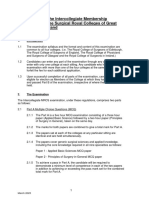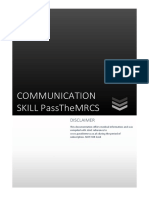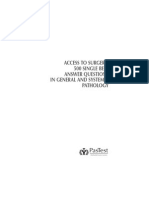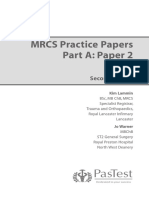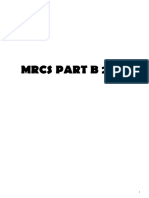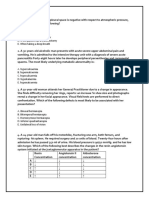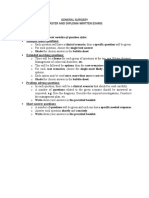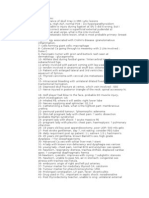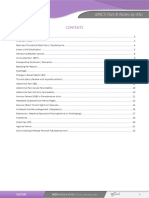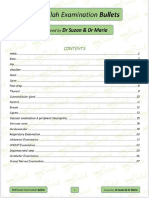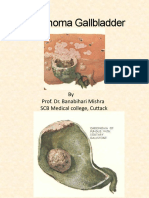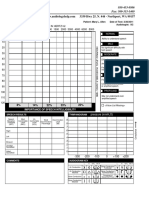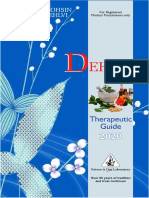0% found this document useful (0 votes)
458 views8 pagesMRCS Study Plan
The document outlines two personalized study plans for the MRCS Part A exam: a 12-week plan with 20-25 hours of study per week and a 6-month plan with 3 hours of daily study. Both plans include a structured breakdown of topics such as anatomy, physiology, pathology, and principles of surgery, along with recommended resources and daily routines. Tips for success emphasize active recall, spaced repetition, and regular mock exams to enhance retention and exam readiness.
Uploaded by
Mohammad EsmatCopyright
© © All Rights Reserved
We take content rights seriously. If you suspect this is your content, claim it here.
Available Formats
Download as PDF, TXT or read online on Scribd
0% found this document useful (0 votes)
458 views8 pagesMRCS Study Plan
The document outlines two personalized study plans for the MRCS Part A exam: a 12-week plan with 20-25 hours of study per week and a 6-month plan with 3 hours of daily study. Both plans include a structured breakdown of topics such as anatomy, physiology, pathology, and principles of surgery, along with recommended resources and daily routines. Tips for success emphasize active recall, spaced repetition, and regular mock exams to enhance retention and exam readiness.
Uploaded by
Mohammad EsmatCopyright
© © All Rights Reserved
We take content rights seriously. If you suspect this is your content, claim it here.
Available Formats
Download as PDF, TXT or read online on Scribd
/ 8

